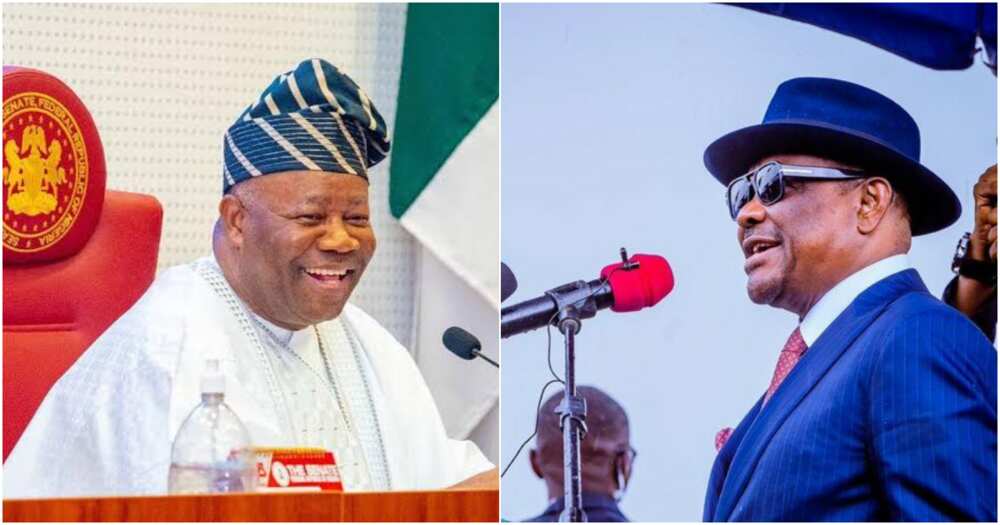Between Minister and Senator in Nigeria: Who is Superior?
In Nigeria, both Ministers and Senators are two of the most important political positions in the country. While both of them have significant powers, their roles, and responsibilities, salaries, and allowances, appointment and selection processes, and relationships are distinct. In this article, we will explore the various aspects of the two positions and compare them to determine who is superior.

A Minister is an appointed member of the cabinet, responsible for managing a particular sector of the government. In contrast, a Senator is an elected member of the Nigerian National Assembly, representing a particular constituency or state. The primary purpose of this article is to compare and contrast the roles and responsibilities of a Minister and Senator, their appointment and selection processes, salaries and allowances, relationships, and determine who is more powerful.
APPOINTMENT AND SELECTION OF MINISTER AND SENATOR
In this section, we explain briefly on how a minister is appointed and how a senator is elected.
APPOINTMENT OF A MINISTER
A Minister in Nigeria is appointed by the President, with the approval of the Senate. The President may appoint anyone, as long as they meet the constitutional requirements for eligibility.
SELECTION OF A SENATOR
A Senator is elected by the people of a particular constituency or state. The Constitution specifies the age, citizenship, and residency requirements for eligibility.
COMPARISON BETWEEN THE TWO PROCESSES
While the processes of appointment and selection are distinct, they both require that the individual meets certain eligibility requirements. Ministers are appointed based on their expertise and professional background, while Senators are elected based on their popularity and political clout.
POWERS AND RESPONSIBILITIES OF A MINISTER AND SENATOR
In this section, we explain responsibilities of a minister and a senator.
POWERS AND RESPONSIBILITIES OF A MINISTER
A Minister in Nigeria has the power to formulate and implement policies relating to their particular ministry. They are responsible for ensuring that the government’s objectives and policies are achieved in their sector. Ministers also have the authority to direct their ministry’s staff and allocate resources to their department.
POWERS AND RESPONSIBILITIES OF A SENATOR
Senators in Nigeria have the power to make laws and oversee the executive arm of the government. They are also responsible for representing their constituency or state and lobbying for their interests in the National Assembly.
COMPARISON BETWEEN THE TWO POSITIONS
While both Ministers and Senators have significant powers and responsibilities, Ministers have a more direct influence on policy formulation and implementation. In contrast, Senators have a more indirect influence on policy through their role in the legislative process.
DIFFERENCES IN REMUNERATION AND BENEFITS
In this section, we see how much salary a minister and a Nigerian senator receives.
SALARIES AND ALLOWANCES OF A MINISTER
Ministers in Nigeria receive a base salary of ₦2,026,400 per annum, ₦168,866:66 per month with various allowances and benefits.
SALARIES AND ALLOWANCES OF A NIGERIAN SENATOR
Senators in Nigeria receive a base salary of ₦2,484,245 per annum, with various allowances and benefits.
COMPARISON BETWEEN THE TWO REMUNERATIONS
While the base salary of a Senator is higher than that of a Minister,
Ministers have access to a wider range of benefits, such as official residences and vehicles, personal assistants, and other perks.
RELATIONSHIP BETWEEN A MINISTER AND SENATOR
COLLABORATIONS
Ministers and Senators are expected to work collaboratively to ensure that government policies are effectively implemented. Ministers often work with Senators to push forward legislative reforms that align with their ministry’s goals.
CONFLICTS
However, there are often conflicts between Ministers and Senators. These conflicts may arise due to differences in political ideology, priorities, or personal interests. Conflicts may also arise if Senators perceive that a particular Minister is not doing enough for their constituency or state.
COMPARISON BETWEEN THE TWO RELATIONSHIPS
While collaboration is essential, conflicts between Ministers and Senators are more common. This is because Ministers have a more direct influence on policy formulation and implementation, while Senators are responsible for representing the interests of their constituents.
WHO IS SUPERIOR BETWEEN A MINISTER AND SENATOR IN NIGERIA?
Based on the above analysis, it is difficult to determine who is superior between a Minister and Senator in Nigeria. While Ministers have more direct influence over policy formulation and implementation, Senators have the power to make laws and lobby for their constituents’ interests. Ultimately, both positions are important and play crucial roles in Nigeria’s political landscape.
CONCLUSION
In conclusion, Ministers and Senators are both critical positions in Nigeria’s political landscape. While they have distinct roles and responsibilities, they are equally important in shaping the country’s future. The decision of who is powerful between a Minister and Senator is difficult to determine, as both positions play crucial roles in ensuring that Nigeria’s government works for its citizens.
